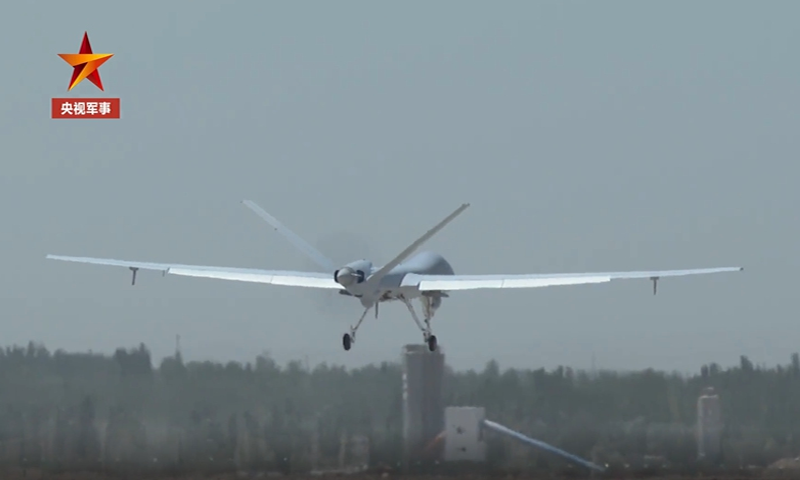The technologies, developed by academies of the Chinese People’s Liberation Army (PLA), were revealed for the first time in an official documentary program that was aired over the past week in celebration of the 96th anniversary of the PLA.
According to the documentary, after having drones train themselves autonomously and gain intelligence through millions of offline simulations plus hundreds of real in-air flights, researchers at the PLA’s National University of Defense Technology have developed a type of drone swarm that can auto-correct, or “self-repair,” when disrupted.
Through autonomous networking and coordination, intelligent algorithms installed on individual drones can form a powerful hive mind, which provides stability and anti-jamming capabilities to the swarm, Xiang Xiaojia, a researcher at the National University of Defense Technology, said in the documentary.
In an undated test of interference countermeasures, a swarm of dozens of drones lost communication and navigation with the ground control station one by one, but managed to restore the links by using the anti-jamming algorithms of other drones in the swarm autonomously.
The test featured different types of mid-sized fixed wing drones flying in the same swarm, including traditional plane configuration drones and a type of vertical takeoff and landing drone, according to the documentary.
The swarm went on and autonomously arranged its path, covered a wide area and searched for the target, before eventually guiding loitering munitions to destroy it.
Another technological system developed by the PLA’s Academy of Military Sciences, named the Integrated Intelligent Interaction System, is being trialed in basic-level units, the documentary said.
Featuring a helmet and an intelligent glove, the system enables a single infantry soldier to simultaneously control multiple unmanned aircraft or vehicles and carry out unmanned integration operations, Xie Xin, a researcher at the Academy of Military Sciences, said in the documentary.
The helmet provides an AR head-up display and the glove is used to control drones through gestures.
Drones compatible with the system include handheld rotary wing aircraft, bird-like ornithopters and caterpillar-tracked vehicles.
This system can significantly enhance troops’ situational awareness on the battlefield through drone reconnaissance, send drones for attack missions and help create pathways through complex terrain, the documentary shows.
China is known as a developer of many advanced drone platforms like unmanned aircraft, vessels and vehicles, and it is also developing systems that make them more intelligent, a Beijing-based military expert who requested anonymity told the Global Times on Sunday.
A trend for unmanned equipment development is intelligentization, digitalization and automation, which will offer advantages in combat, the expert said.




